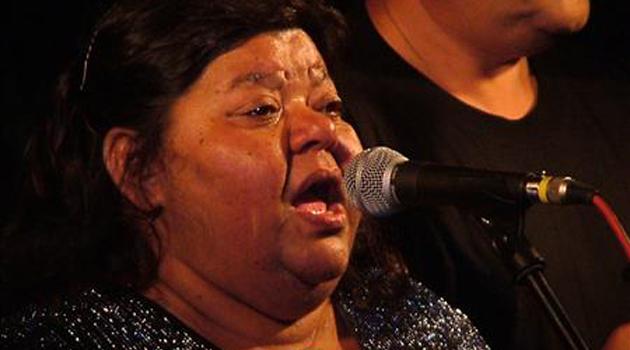Czech Television presents documentary film about Romani singer Věřa Bílá

Directors Roman Šantúr and David Vondráček describe the dramatic events that took place during two years in the life of the Romani singer Věra Bílá in their documentary film “Věra Bílá’s Final Hope” (Poslední naděje Věry Bílé). This remarkable vocalist, who just a few years ago was performing sold-out shows at L’Olympia in Paris and singing for U.S. President Bill Clinton at the White House, has now ended up living in a residential hotel in Rokycany and dreaming of a return to the global stage.
Public broadcaster Czech Television will broadcast the film on 4 December. The documentary was created over the course of two years, and the producers witnessed dramatic changes in the life of this unique performer, who several years ago preferred playing the slot machines in Rokycany to performing at the Royal Opera in Madrid or New York’s Carnegie Hall.
“We anticipated that Bílá would again have a global comeback, this time in connection with Romani rock, but neither the circumstances nor fate were in favor of that,” Vondráček told the Czech News Agency. The documentary captures Bílá during a difficult period of her life when, after the deaths of both her adopted son and her husband, she is drowning in depression.
During this period she is offered an opportunity by bandmaster Dušan ‘Džino’ Čonka, who is attempting to combine Romani folk music with hard rock, to perform in the Džino Rom-Rock group. The documentary depicts 64-year-old Bílá as a problematic performer with a microphone in one hand and a cigarette in the other.
Bílá’s problems with discipline are also portrayed, due to which she suspends her collaboration with Čonka for a time. Eventually she returns to his project because she realizes how lonely she is without music.
After grueling rehearsals and the recording of a CD, Bílá and Čonka plan their first public performance. They are heading to concert dates in Norway when another reversal happens – Čonka is arrested by police and faces up to 10 years in prison.
“The film is full of twists and terms and is sad and tragic, as Věra Bílá’s entire life has ultimately been. However, I believe the compositions that can be heard in the film will remain with us forever. Věra Bílá would not be who she is if her personality had been seamless, smooth and soft. She is complex, troubled, but she knows how to express bereavement and her own internal paradoxes through her singing,” Vondráček told the wire service.
At the turn of the millennium, Bílá was the most famous singer from the Czech Republic in terms of global reputation. She became famous both abroad and at home, first and foremost by performing with the band Kale.
Bílá and Kale released four albums. Their debut alum Rom Pop was released in 1996 and the musicians enjoyed success with it especially in France, but promoters in many other countries also took great interest in their concerts.
In 2005, due to disagreements with the other musicians, Bílá left the band. She comes from the Giňa family of musicians, into which she was born on 22 May 1954 in Rokycany, Czechoslovakia.
Bílá began living with her husband František at the age of 15 and they adopted their son 10 years later. Her career as a singer began with her performing for family celebrations, parties and weddings with the cimbalom music of her father, Karol Giňa.
